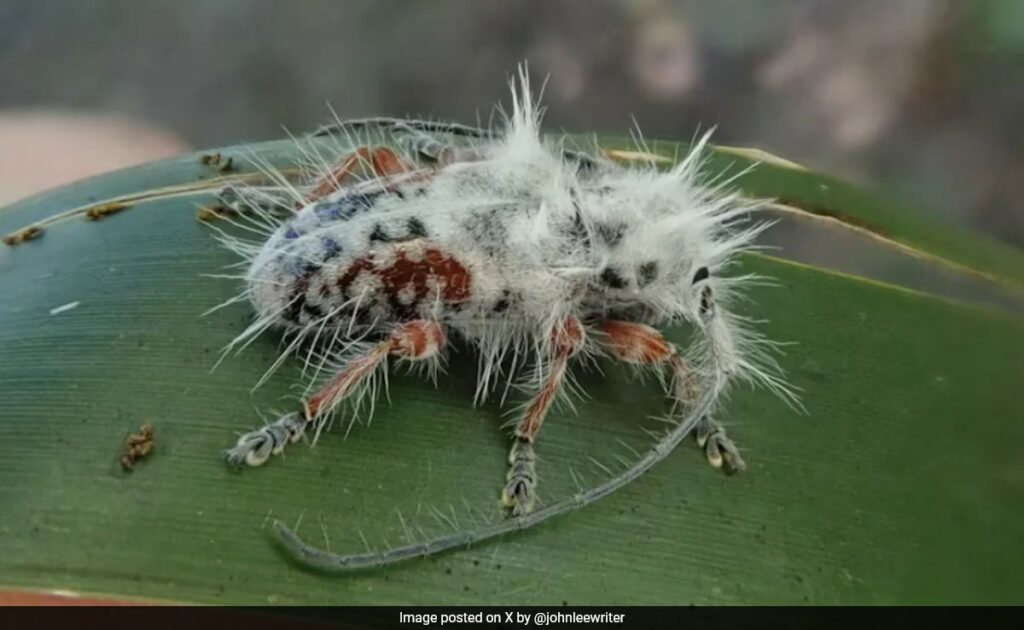The researcher said that the beetle’s appearance sets it apart from other insects.
An unexpected discovery unfolded during a camping trip in Queensland”s Lamington National Park for researcher James Tweed. What initially appeared to be mere bird poo turned out to be a never-before-seen beetle with a truly unique look.
Mr Tweed, a researcher from the University of Queensland, expressed his surprise to the BBC, “It’s very unique. There are not many insects out there that have that trait.”
The national science agency CSIRO has confirmed an entirely new family of longhorn beetles.
This newfound longhorn beetle, no bigger than your fingernail, boasts a spiky white mohawk, making it a fitting candidate for the nickname “punk beetle.”
“A lot of the hairs stand basically straight upright, and so it gives it a bit of a mohawk-type look,” the entomologist told the BBC.
While camping in December 2021, researcher James Tweed stumbled upon a tiny creature on a leaf. His initial impression? Bird droppings. But something about it sparked his curiosity. “There was a nagging feeling that I should take a closer look,” Tweed recounted. This intuition paid off – the seemingly mundane speck turned out to be a groundbreaking discovery. Tweed brought the specimen to the CSIRO’s Australian National Insect Collection (ANIC) for further examination.
“I worked with a couple of colleagues from the national insect collection, who literally wrote the book on these groups of beetles… they examined tens of thousands of specimens in museums all over Australia and the world, and they’ve never found it before,” he said.
Mr Tweed remarked on the beetle’s unique mohawk, unlike anything he’d ever encountered in the insect world.
The researcher said that the beetle’s appearance sets it apart from other insects. “This is something pretty special, something pretty different,” he remarked.
Post a comment Experts theorize that the punk beetle’s spiky white hair might be a clever trick for survival. Mimicking bird droppings or a fungal infection during the day, these unique hairs could help the beetle camouflage itself from predators.
